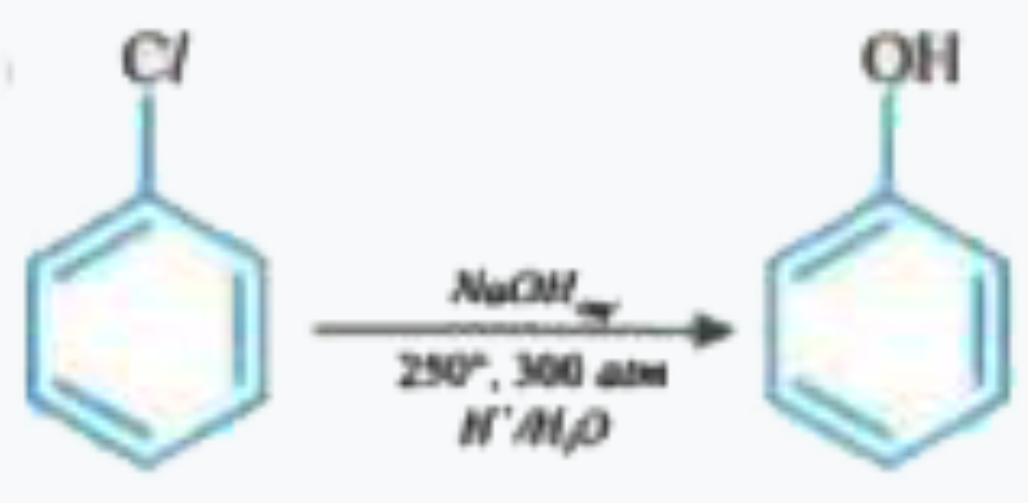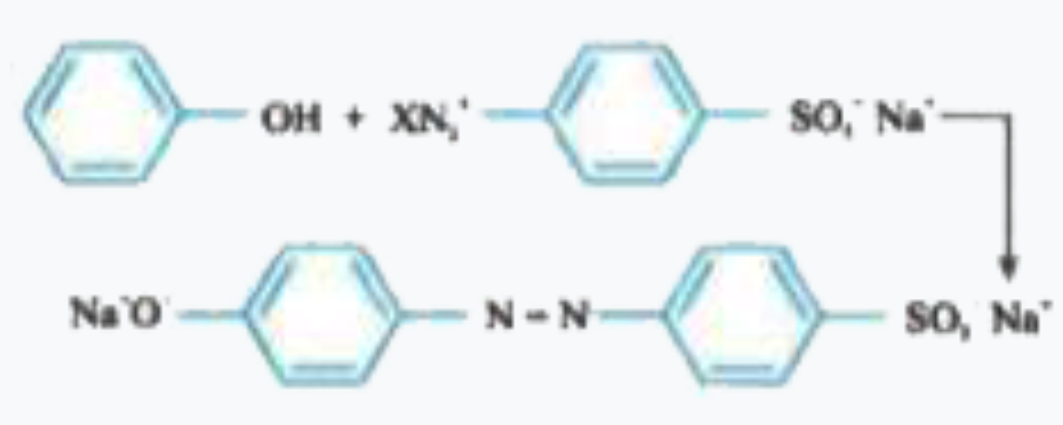Why do alkenes prefer to undergo electrophilec addition reaction while arenes prefer electrophilic substitution reactions ? Explain.
Video Solution
Text Solution
Due to the presence of a π-electron cloud above and below the plane of alkenes and arenes , these are electron rich molecules and hence attract electrophiles and thus undergo electrophilic reactions. Alkenes , undergo electrophilic addition rather than substitution reactions because of the following two reasons :

(i) In electrophilic substitution reactions, one σ-bond is broken and another is formed . Since the bond energies of the σ C-H bond broken and new σ C-X bond formed are not much different , therefore, electrophilic substitution reactions of alkenes are not accompanied by large energy changes and hence are energetically not favourable
(ii)In electrophillic addition reactions, one weak π-bond is broken and two strong σ-bonds (C-X and C-Y) are formed , therefore , electrophilic addition reactions of alkenes are accompanied by large energy changes and hence are energetically favourable . In other words, the typical reactions of alkenes are electrophilic addition reactions and not electrophilic substitution reactions.
In contrast, arenes undergo electrophilic substitution reactions rather than electrophilic addition reactions as explained below :

Benzene has a large resonance energy of 150.6kJ mol−1 . During electrophilic addition reactions , two new σ-bonds are formed but the aromatic character of the benzene ring is destroyed, i.e., the resonance energy of the benzene ring is lost. Since the loss in resonance energy is more than the energy released during formation of two additional σ-bonds, therefore , electrophilic addition reaction is not energetically favourable.
In contrast, during electrophilic substitution reactions, one σC-H bond is broken and one new σ C-X bond is formed but the aromatic character of the benzene ring remains intact , i.e., resonance energy of the benzene ring remains intact. In other words, small energy changes , if any , during making and breaking of σ-bonds is more than compensated by the large resonance energy of the benzene ring. Thus, electrophilic substitution reactions of arenes are energetically more favourable than electrophilic addition reactions. Thus, from the above discussion, it follows that alkenes undergo electrophilic addition reactions while arenes undergo electrophilic substitution reactions.
|
Topper's Solved these Questions
- HYDROCARBONSBOOK - PRADEEPCHAPTER - HYDROCARBONSEXERCISE - NCERT EXEMPLAR PROBLEMS WITH ANSWERS, HINTS AND SOLUTIONS (MATCHING TYPE QUESTIONS)
4 Videos
- HYDROCARBONSBOOK - PRADEEPCHAPTER - HYDROCARBONSEXERCISE - NCERT EXEMPLAR PROBLEMS WITH ANSWERS, HINTS AND SOLUTIONS (ASSERTION AND REASON TYPE QUESTIONS)
4 Videos
- HYDROCARBONSBOOK - PRADEEPCHAPTER - HYDROCARBONSEXERCISE - NCERT EXEMPLAR PROBLEMS WITH ANSWERS, HINTS AND SOLUTIONS (MULTIPLE CHOICE -II)
9 Videos
- EQUILIBRIUM IN PHYSICAL AND CHEMICAL PROCESSESBOOK - PRADEEPCHAPTER - EQUILIBRIUM IN PHYSICAL AND CHEMICAL PROCESSESEXERCISE - Competition Focus (Jee(Main and advanced)/Medical Entrance) VIII. ASSERTION - REASON TYPE QUESTIONS (TYPE - II)
10 Videos
- HYDROGEN BOOK - PRADEEPCHAPTER - HYDROGEN EXERCISE - COMPETITION FOCUS (Assertion-Reason Type Questions) Type 2
15 Videos
Similar Questions
Knowledge Check
The example of an electrophilic substitution reaction is
A B
B CH2C=CH−CH3HBr−−−−→peroxide
CH2C=CH−CH3HBr−−−−→peroxide
Br2−CH2−CH2−CH3DH2CH2−CH2−O∣∣C−CH3For an electrophilic aromatic substitution reaction
AChlorine is o-p directing group and also electron releasing groupBChlorine is o-p directing group and also electron withdrawing groupCChlorine is meta directing group and also electron releasing groupDChlorine is meta directing group and also electron withdrawing groupThe ether the undergoes electrophilic substitution reaction is
ACH3OC2H5BC6H5OCH3CCH3OCH3DC2H5OC2H5
Why do alkenes undergo electrophilic addition reactions ?
View SolutionWhy do alkenes undergo electrophilic addition reactions ?
View SolutionElectrophilic substitution reaction in Haloarenes
View SolutionHaloalkanes undergo nucleophilic substitution reactions while haloarenes undergo electrophilic substitution reactions. Explain.
View SolutionThe ether that undergoes electrophilic substitution reactions is
View Solution